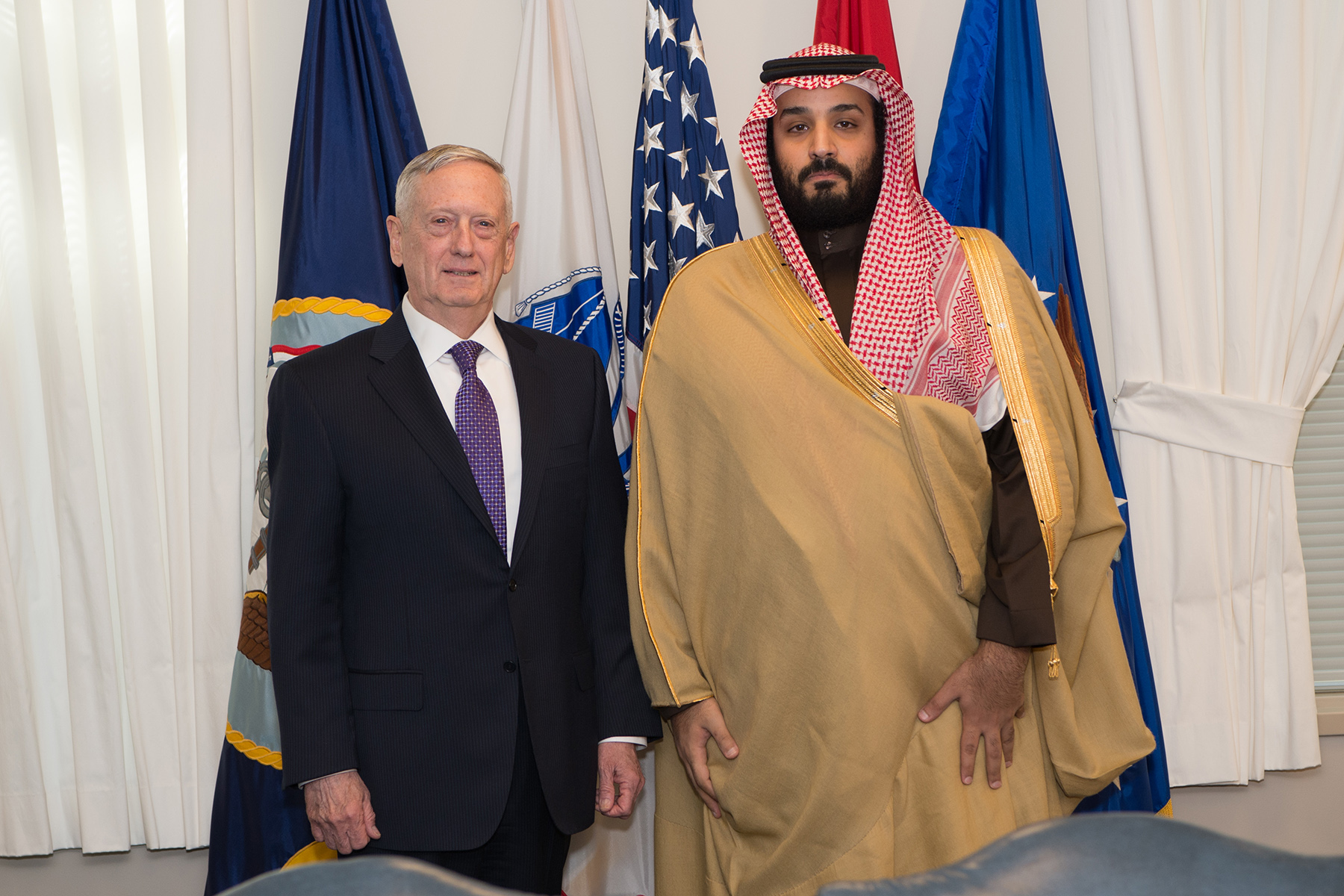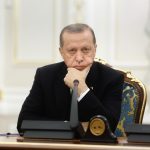by Thomas W. Lippman
In the 75-year history of the improbable alliance between the United State and Saudi Arabia, the Saudis have taken many actions and adopted many policies that infuriated the White House or Congress or both.
They participated in the Arab oil embargo during and after the 1973 Middle East War. They secretly purchased nuclear-capable missiles from China. They refused to endorse the peace initiative of Egyptian President Anwar Sadat and joined other Arab states in boycotting Egypt after Sadat signed a peace treaty with Israel. They opposed President George W. Bush’s invasion of Iraq and President Barack Obama’s multinational nuclear agreement with Iran. They have routinely locked up Saudi citizens who were known and respected in Washington. And of course there were the events of September 11, 2001, for which the Saudi government was never found directly responsible even though most of the perpetrators were Saudi citizens.
Every time, the bilateral strategic and economic partnership survived or was quickly restored because the two countries needed each other.
In the context of that history, it seems unlikely that the fate of one individual could cause a serious breach in the alliance, especially because of President Trump’s warm feelings about Saudi Arabia’s de facto ruler, Crown Prince Mohammed bin Salman.
But something feels different now, in the case of Jamal Khashoggi. If it turns out to be true, as officials in Turkey have alleged, that Saudi agents killed and dismembered him at the Saudi consulate in Istanbul and smuggled the body parts out of the country, it is hard to imagine a quick return to business as usual after an act of such brazen barbarity. Khashoggi has frequently criticized the Saudi government, but his visit to the consulate had nothing to do with politics. He was there to secure paperwork that would allow him to marry a Turkish woman.
Already some members of Congress have called for recalibrating the relationship if the story of his killing turns out to be true.
“If this deeply disturbing news report is confirmed, the United States & the civilized world must respond strongly, and I will review all options in Senate,” tweeted Sen. Marco Rubio (R-FL).
“If this is true—that the Saudis lured a U.S. resident into their consulate and murdered him—it should represent a fundamental break in our relationship with Saudi Arabia,” Sen. Chris Murphy (D-CT), said in a tweet.. Rubio and Murphy are both members of the Senate Foreign Relations Committee.”We agree that if there was any truth to the allegations of wrongdoing by the Saudi government it would be devastating to the US-Saudi relationship and there will be a heavy price to be paid—economically and otherwise,” said Sen. Lindsey Graham (R-SC).
Vice President Mike Pence said that he was “Deeply troubled to hear reports about Saudi Arabian journalist Jamal Khashoggi. If true this is a tragic day.”
As those statements and many others in the same vein indicate, Khashoggi was not just any Saudi journalist. He has been a well-known figure since he wrote about his travels with Osama bin Laden before the 2011 attacks on the United States. He was twice editor of Al Watan, the least subservient newspaper in Saudi Arabia, before he was dismissed for publishing views that strayed from the government’s official line. Foreign diplomats and visiting journalists regularly sought his views on Saudi affairs. In those conversations, he said what he thought, even though he knew it could be dangerous.
He was not a political dissident, in the sense that he did not advocate regime change, but he never made any secret of his objections to government policies and actions of which he disapproved. As his articles and public remarks became more critical of Islamic extremism and of Saudi Arabia’s autocratic government, his position at home became increasingly precarious. He quickly got under the skin of the hypersensitive Mohammed bin Salman, who, Khashoggi said at a conference in Washington last year, “is doing all the right things in all the wrong ways.”
By 2017, as the government was tightening the screws on dissent and civic activism in any form and he was barred from writing, Khashoggi left the kingdom for his own safety. He took up residence in Washington, where he became a contract columnist for The Washington Post and continued to criticize his country’s government. On Saturday, the Post left white space where Khashoggi’s column would have appeared.
“If true, this is a horrific crime, the assassination of a journalist in his own country’s consulate on foreign soil—something without precedent in modern times,” the Post said in an editorial asking for answers from the governments of Saudi Arabia, Turkey, and the United States.
Khashoggi thus has about as high a profile as a foreign citizen could have in the United States. If the Saudi government is proved to be responsible for his disappearance—even if he is alive and in custody after being kidnapped—the criticism will be loud and unequivocal. But no one should assume that Khashoggi’s fate would lead to direct measures against Saudi Arabia by the Trump administration. The United States has never, under any president, disrupted relations with Saudi Arabia over its mistreatment of any individual or group. The U.S. position since the Truman administration has been that the United States is allied with Saudi Arabia for strategic and economic reasons, and how the Saudis run their domestic affairs is none of Washington’s business. That is why the State Department’s annual human rights reports, which routinely flog the Saudis for their cruelty to their citizens, never affect the bilateral relationship.
The United States is no longer dependent on Saudi oil, but it maintains close relationships on important strategic issues: counter-terrorism, containment of Iran, cyber security, and freedom of navigation in the Persian Gulf. Saudi Arabia is a major purchaser of weapons and heavy equipment from the United States.
In his annual report to Congress in March, Gen. Joseph Votel, commander of the U.S. Central Command, said that, although feuding with each other, Saudi Arabia and the five other members of the Gulf Cooperation Council
are among the United States’ best partners in the region and a counter-balance to Iran. The virtually unhindered access, basing, and overflight approvals from our Gulf partners, as well as their contributions of troops and airlift have been critical to the success of Defeat-ISIS operations over the past year. The GCC also represents the most promising baseline effort for promoting collective defense initiatives, including joint counter-terrorism and ballistic missile defense. As they look to the United States for military equipment, training, and assistance, it is essential we seek opportunities to include GCC partners in our combined efforts to defeat regional threats posed by extremism and Iran’s burgeoning influence.
The Pentagon and the National Security Council would be reluctant to jeopardize that relationship over the fate of one private citizen, especially if he turns out to be alive. President Trump has said he is “concerned” about Khashoggi’s fate but has not committed himself to any course of action. It is possible, however, that this affair could prompt Congress to hold back on arms sales or curtail U.S. logistical support for the Saudi-led war in Yemen.
To do nothing would only encourage Saudi Arabia’s impetuous young crown prince, whose seeming casual willingness to alienate friends was on full display in his recent display of petulance directed at Canada. In response to a fairly routine criticism of the kingdom on a human rights issue, the prince threw out the Canadian ambassador, recalled Saudi students from Canada, and cut off arms purchases. Canada has little leverage over Saudi Arabia, but the United States has as much leverage as the president decides to exert.






Most of the time, not all the time, America somehow manages to be on the wrong side of history! It’s sad to see when mama’s thrown off the train for money!